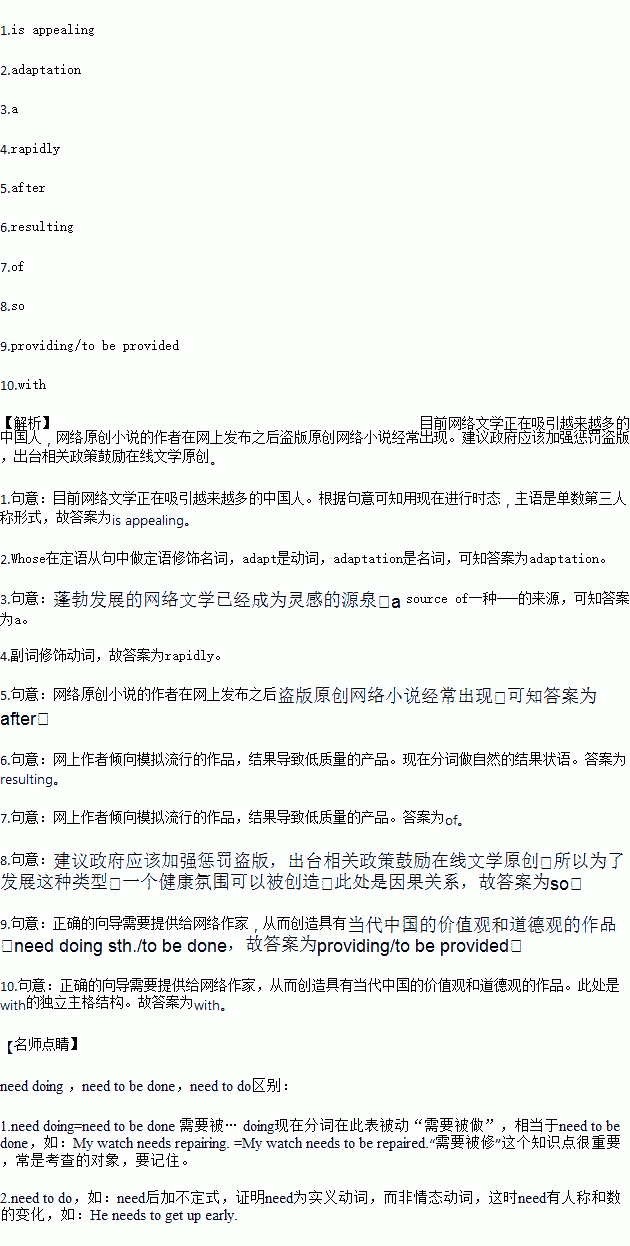题目内容
Rising Web Literature
Internet literature 1. (appeal) to more and more people in China at present, such as fantasy novel Three Lives Three Worlds, Ten Miles of Blossoms, whose 2. (adapt) -Eternal Love-was aired earlier this year.
The flourishing online literature has become 3. source of inspiration for a larger number of films, games and animations.
However, the 4. (rapid) growing genre (体裁) is faced with problems such as piracy (盗版行为). Pirated versions often appear soon5. original Web novels are posted online by authors. Moreover, online writers tend to imitate popular works, 6. (result) in productions 7. low quality.
It is suggested that the government should tighten punishment for piracy, introducing relevant policies to encourage originality in online literature works 8. a healthy atmosphere for developing the genre can be created.
In the meanwhile, proper guidance needs 9. (provide) for online writers to create works 10. positive contemporary Chinese values and morals properly presented.
Monday | ||
8 —10 a. m. | TECHNOLOGY Information Technology (IT)—Using the Internet In this lesson, students learn how to surf the internet safely and effectively. There will also be information about using different search engines. | |
10:00 a. m. | DRAMA Students learn the play that the teacher gave before class. During this lesson, students will have the chance to act out roles with other students. | |
11:00 a. m. | PAINTING WITH WATERCOLOURS For most of this term, students learn how to use watercolours properly to make pictures. If the weather is good, the lesson may take place outdoors. | |
2 — 4 p. m. | SPORTS Students learn about the skills in a certain sport by watching video to see real action from past games. And then, students will play a short match lasting 45 minutes. This week, the sports are football (for boys) and tennis (for girls). | |
| HOMEWORK IT—the teacher will give students websites to look up at home. (about 20 minutes) Drama –students have to learn a part for the next lesson (about 40 minutes). | |
1.At _______, students are having a painting lesson.
A. 11:35 a. m. B. 4:30 p. m.
C. 10:30 a. m. D. 2:15 p. m.
2.Students should prepare a new part of _______ ahead of time as their homework.
A. Technology B. Painting
C. Sports D. Drama
3.The information in the table is mainly for students to _______.
A. choose teachers B. do their homework
C. take classes D. organize hobby groups


